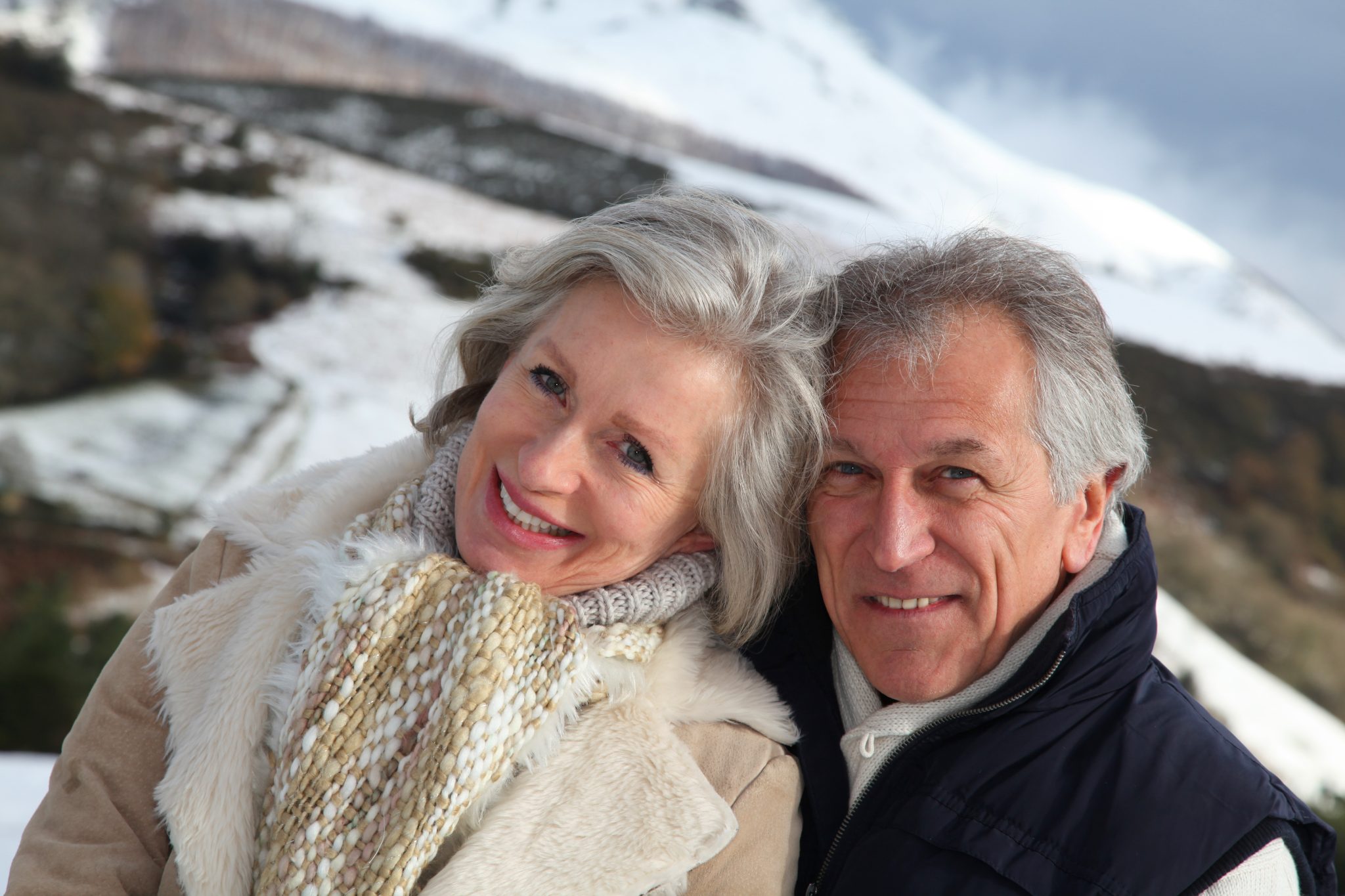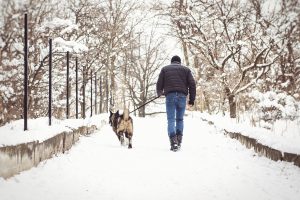No matter your age, winter can be a difficult season. For older adults, it can be especially challenging; though you may experience real challenges like seasonal depression or loneliness, your symptoms will often go overlooked or be written off as “just a normal part of aging”. In addition to this, the colder temperatures and icy conditions can lead to physical challenges like illnesses and falls. However, this doesn’t mean that you cannot enjoy winter as an older adult. Far from it! With the right strategies for both your physical and mental health, your winters can go from woeful to wonderful.
Staying healthy – What does that mean?
The word “healthy” can mean vastly different things to different people. For a cancer survivor, being in remission may be all that they need to feel healthy again; for someone who used to run every day, it might be tough to consider themselves healthy as their body ages. Taking the time to explore what your definition of health is can help to show you what areas of your life you need to put more effort into—it can also help you to see if you are struggling to accept any age-related challenges.
Beyond your personal definition of health, there are certain things that every human being needs to stay well. In winter, it’s important to stay warm, keep active, socialize, and prevent illness as much as possible. This season is hard on both your body and your mind, so you should make sure to take care of both your mental and physical health.
In the rest of this article, we will go over several areas of your life to pay attention to when navigating the winter months. These tips are general and are not personalized to your lifestyle, so remember to take things at your own pace. Only you know what exactly your healthy state is and what your abilities and limits are.
Staying warm
As an older adult, it is especially important to stay warm during the winter, both indoors and outdoors. According to the JAMA Network, older adults and people with chronic illnesses—including those common in older adults, such as diabetes and arthritis—have a higher chance of developing hypothermia. Developing hypothermia is very dangerous, and can even be fatal. John Hopkins Medicine notes that unfortunately, “half of the elderly people who develop hypothermia die before, or soon after, being found”. Because of this, the best thing that you can do is take precautionary measures and avoid developing hypothermia in the first place.
When going outside, you should always check the weather first. It is better to be safe than sorry, so if conditions look bad, stay in. If you have to go out, be sure to let someone know where you are going, and when to expect you back. Becoming stranded outdoors because of changes in weather or falls may sound unlikely, but putting these safeguards in place can save your life should anything happen. Making a list of possible shelter areas—think cafes, libraries, community centers, etc—also reduces the chances of getting stuck out in the cold.
In terms of clothing, dressing in layers is a proven strategy to combat heat loss. Wear an inner layer of a sweat-wicking material like wool or polyester, then cover that with sweaters, long pants, and a waterproof or water-resistant coat. Avoid cotton, as it can easily trap and hold moisture. Getting wet is one of the biggest contributors towards hypothermia, so bringing an extra change of clothes is a good idea if you’ll be sweating a lot, or if you’ll be out for a long time. Top it off with a warm hat, mitts, and a scarf, and you’ll be all set!
When temperatures are cold, staying well fed and hydrated can also help to keep you feeling warm and toasty. As you digest food, your body naturally generates heat—foods that take longer to digest, like complex carbs, proteins, and healthy fats will keep you warm for longer. Drinking warm drinks is another great strategy. Though dehydration may seem like a summertime concern, it’s still very possible in winter, when the air is dry and the body is less able to sense dehydration due to the cold. Bringing a thermos of hot chocolate, tea, or another warm drink with you when going out can keep you warm and remind you to stay hydrated. Just be careful to avoid alcohol and caffeine, as these are diuretics and can actually worsen dehydration.
Even while indoors, hypothermia can be a risk. When temperatures get especially low, you should take measures to prevent your environment from getting too cold by setting your thermostat to a warm enough temperature—above 68℉ is recommended—and by reducing drafts. This can be done in a number of ways, depending on your budget. A quick fix for drafty windows is to hang blankets or thermal curtains as an added layer of insulation, as glass is a poor insulator on its own. If you have an open letterbox, you should also consider buying letterbox covers. If you’re okay with spending a bit of cash, adding draft-proofing strips and filling in floorboard gaps can help you to feel much cozier; if your floorboards are especially drafty, you can also invest in a nice carpet—bonus points if you use a carpet underlay. When draft-proofing your home, consider enlisting the help of your younger family members, as it may require a fair bit of physical mobility. There’s no shame in asking for help. In fact, it can create a great opportunity for family bonding.
Staying physically active
According to Healthline, older adults should aim to get about 150 minutes, or 2.5 hours, of moderate exercise each week. This should include strength training exercises, flexibility work, and exercises aimed to improve balance. While this may seem daunting, especially in winter, there are several ways to break this up into shorter, more manageable chunks. It is suggested that you break things up into a combination of short walks, longer walks, and exercise classes, which are all achievable in the wintertime! You just need to take adequate safety precautions.
If going out for a walk, the two biggest things you should be avoiding are hypothermia—which you are now a pro at—and falls. When the weather is icy, it becomes very easy to slip and fall, which can be very dangerous for older adults. As per the National Institute on Aging, the risk of falls increases with age, and with it the risks of broken bones, serious health issues, and long-term disabilities. Still, walking is one of the easiest and most accessible forms of exercise for many, so avoiding it out of fear of falling is not always the best idea.
Thankfully, there are steps that you can take to decrease your chances of falling. First and foremost, you should avoid walking outside when conditions are particularly bad—no amount of exercise is worth the risk that freezing rain or a flash freeze can bring. If you do want to get exercise on these days, consider doing a virtual workout from home. YouTube is chock-full of older adult exercise videos! All you have to do is a quick search for something like “guided older adult exercise without equipment”. If you do go outside, wear rubber-soled boots or shoes to increase traction, and consider investing in ice-grips for an added layer of safety; just remember to take these grips off while indoors, to prevent slipping or damaging your floors. If you use a cane, buying an ice-tip can also make things safer for you. And, even though it may feel silly, walking like a penguin can help to prevent you from losing your balance. Even with all of these measures, try your best to walk on cleared paths and avoid icy, dark, or wet patches of ground. Nothing is foolproof!
When conditions permit, you could also try heading to a local exercise class for something like Zumba, aquafit, swimming, or yoga—anything that will get you moving in a safe, fun way. This can be especially helpful if the weather outside is too cold to walk comfortably. Take advantage of that indoor heating!
Staying mentally active
Just as staying physically active is important for your physical health, staying mentally active is vital for preventing mental health issues. Particularly in winter, when days are shorter and people are naturally more isolated, mental health issues like Seasonal Affective Disorder (SAD), depression, and anxiety can appear. And no matter the season, a lack of mental stimulation can lead to the development or worsening of cognitive decline, Alzheimer’s, and dementia.
During the wintertime, engaging with hobbies at home can keep your mental agility up without risking your health and safety. If you enjoy reading, writing, knitting, painting, sewing, or anything else that you can do from home, try incorporating that into your daily routine. In fact, just the practice of establishing a healthy habit-filled routine can do wonders for your overall mood and wellbeing, no matter the season. Working in new habits like meditation, which is proven to improve both mental and physical health, can be highly beneficial.
Another excellent thing to work into your routine is dedicated time to learn new things. In an episode of the American Psychological Association’s podcast, host Kim Mills notes that “research suggests that continuing to learn new things throughout adulthood may be key to keeping your cognitive skills sharp as you age”. Learning new things like a new language, playing an instrument, singing, drawing, practicing technology, or anything else that interests you can improve both memory and attention. In fact, a study by Scientific American shows that if you stay consistent, learning new things can actually make your mind as sharp as someone 50 years younger! Winter can lead to a lot of time spent at home, which can be hard on your mental health. By using this time to improve your cognition, you will be able to turn this negative into a positive.
Staying social
The seasonal challenges of winter can make it hard to be social. Weather may cause you to have to cancel plans, and the shorter days might discourage you from making new plans in the first place. Whatever the challenge may be, there are still plenty of ways to stay social while also staying safe. Just remember to stay cautious and check the weather forecast if you plan to spend time outdoors!
When the weather permits, going out with friends on a walk, to do some shopping, or to have coffee together can be a great low-effort way to reconnect with others. If you are feeling a bit more adventurous, you could check out a winter festival or a local holiday market—if you celebrate Christmas (or even if you don’t!) this can be a great chance to pick up gifts to show your love to friends and family. Going to a festival is popular with families, as the wide variety of events provides something for everyone to enjoy. So grab your grandkids and get out there!
If the weather looks iffy, you’ll often be able to find indoor events in community centers, like holiday crafts and a variety of clubs. Engaging with your hobbies alone is good for your brain, but engaging with your hobbies alongside others is even better. In an article by the Senior’s Guide, book clubs in particular were noted as being highly beneficial for brain health, socialization, and overall lifestyle improvement. By searching on Google or checking your community center’s bulletin board, you should be able to find local clubs for knitters, readers, and so much more. If you’re more of a musical person, you can always attend live music shows, concerts, or join a choir; this can help you to meet fellow music enthusiasts too!
Staying illness free

To reduce your chances of getting sick, wash your hands frequently with soap and water. A general rule of thumb is to wash your hands anytime after going outside, to minimize the chance of bringing harmful germs into your home. Getting vaccinated will also help to both protect you and those around you, as vaccines effectively cut down on transmission rates through herd immunity, as explained by the WHO. For older adults, the CDC recommends that you get a higher-dose or adjuvanted vaccine for the flu to increase the vaccine’s effectiveness. As with anything healthcare related, it is best to talk to your healthcare provider if you have any questions or concerns related to vaccinations. In some cases, your vaccinations may be covered by Medicare as well.
Beyond vaccinations and general handwashing, you can wear a mask to further cut down your exposure risks. If you are going to a high-risk area like a hospital, or are feeling unwell yourself, wearing a mask can protect both you and others by minimizing the spread of viral and bacterial particles. While masks are not foolproof, they are proven to have a significant positive effect against airborne illnesses. If you are sick, or are going out into a public area, be sure to mask up.
Final remarks
Staying safe this winter doesn’t have to be hard. With proper planning, weather appropriate attire, and an awareness of your limits, you can enjoy this season just like any other. If this winter has felt particularly hard, don’t be afraid to reach out for help—mental health is just as important as physical health, and issues like seasonal depression are very real concerns. Talk to family, friends, or your doctor to work out your next steps. Don’t lose hope! Help is out there.







